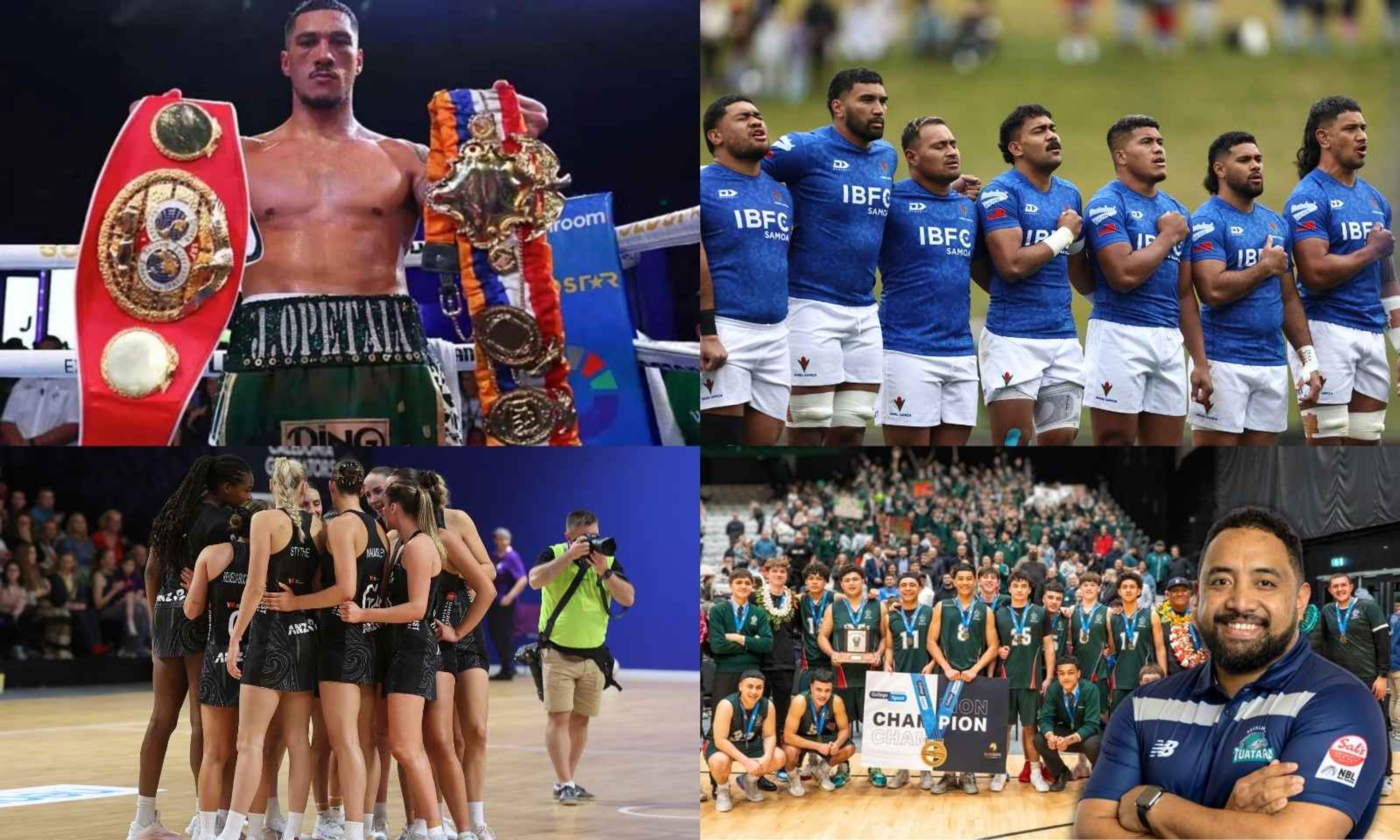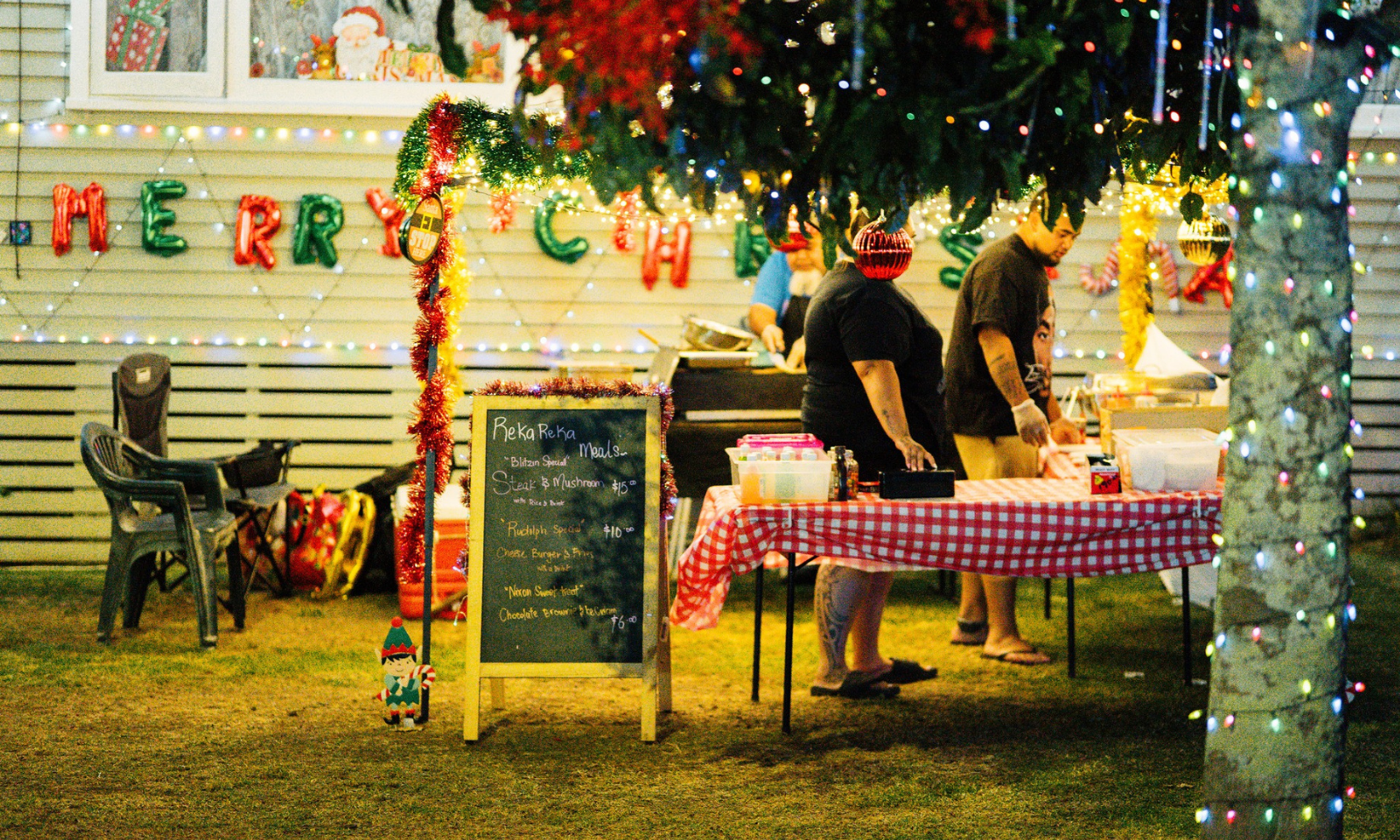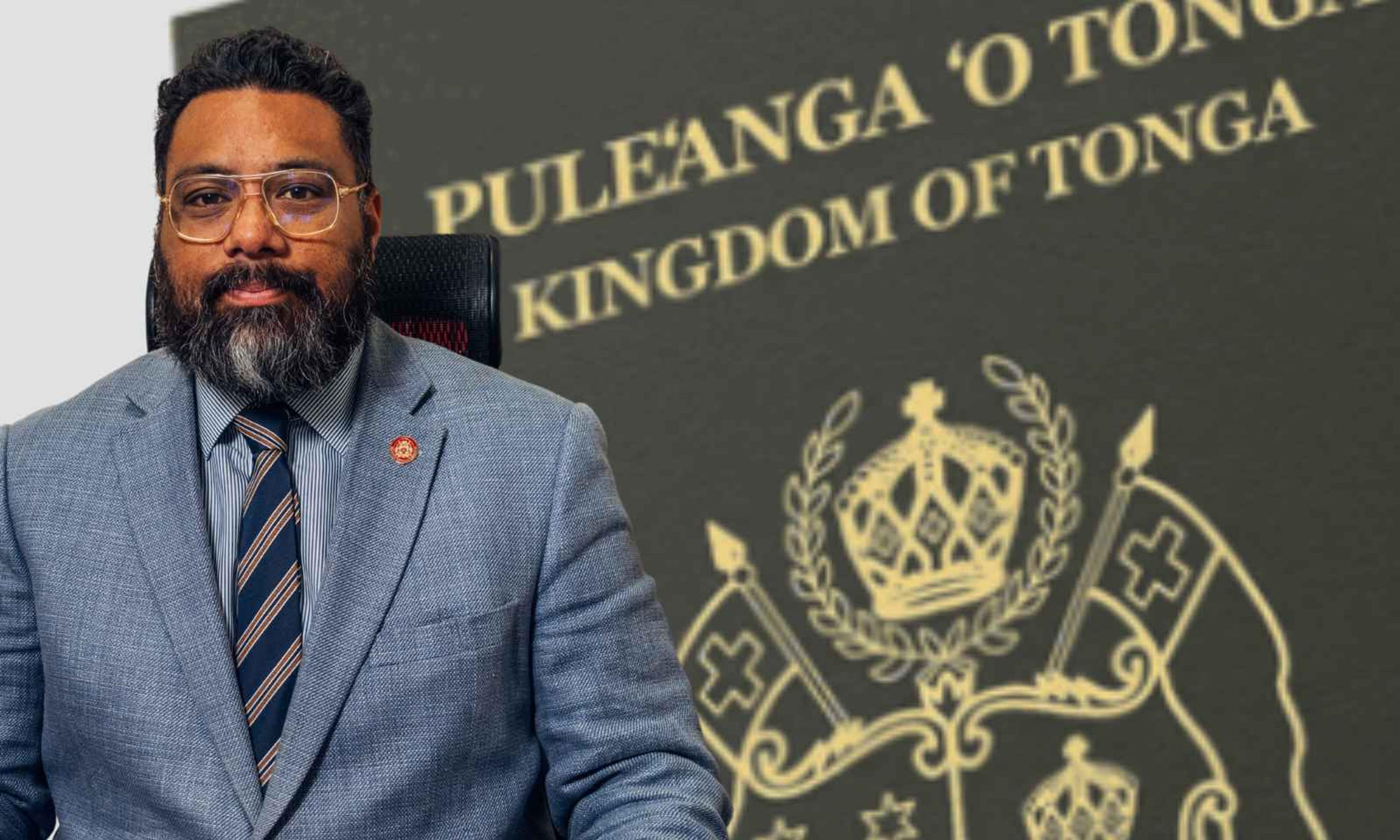

PMN Multimedia Journalist Atutahi Potaka-Dewes at Ha'atafu Beach, Tongatapu during her coverage of the Pacific Mission in April.
Photo/Supplied
PMN’s year in review: Overcoming fears and taking pride in language and culture
PMN Multimedia journalist Atutahi Potaka-Dewes (Te Arawa, Ngāti Uepōhatu, Asau, Tapueleele, Tuana'i) reflects on the year that was and the importance of language.




Fresh warning as Tonga PM defends citizenship investment scheme

‘I knew something was wrong’: Pacific children miss out on early hearing support


Pacific sports wrap: 2025’s massive highs, lows and historic firsts


Fresh warning as Tonga PM defends citizenship investment scheme

‘I knew something was wrong’: Pacific children miss out on early hearing support
“You are atua made, iwi shaped, reo driven, and the leaders of today.”
Words of my old people that reassure my purpose and why I chose to accept the responsibility of being a messenger for indigenous peoples in Aotearoa, or as the job description says - a multimedia journalist.
Armed with my te ao Māori worldview I left the aromatic shores of Lake Rotorua for the big smoke of Tāmaki Makaurau, ready to reawaken my teine Sāmoa.
Reflecting on the year with Pacific Mornings host Levi Matautia-Morgan, we talk of PMN and the aunties who always invite us to eat, cheeky uncles and their long stories, hilarious quick-witted colleagues that question our employment, boisterous laughs, and plenty of feeds to break the screen-time.
Polyfest rolls around and it’s the first time the warmth of a crowd is physically present at the festival since Covid-restrictions lifted and capturing those good vibes was the initial story.
Sitting there at the Diversity Stage eating some pork buns - next minute, a didgeridoo plays and out comes a group of Aboriginal youth dancers.
Seeing one of the most ancient cultures connect with Pacific audiences reminded me that performing arts isn’t about putting on a show but the continuation and evolution of ancestral practices.
Knowledge that has often been shredded and filtered to a point where the lines between indigeneity and colonialism have blended together.
Having lived experience of Māori environmental practices, naturally this piqued my curiosity to discover what holistic knowledge my Sāmoan ancestors left behind.
The rising of Matariki was a perfect chance to ask those questions not just about Sāmoa but then of Fiji, Niue, The Cook Islands, and Tonga. Speaking to respective cultural experts they often said that through converting to religion, much of this knowledge is lost.
While interpretations of the stars vary for every village and island, the intention of our Matariki series was to provoke conversation and encourage us to not sit comfortably in ignorance. So that every day we’re a step closer to regaining that atua given knowledge.
From what I’ve learned, language is imperative to a thriving culture and when we speak our indigenous languages we are linked to our past, present and future people all at once.
Now that’s not to say the journey of reconnection is as easy as that. I started the year with huge insecurities to speak Gagana Sāmoa and with producing our Pacific Language Week videos I wanted to acknowledge the vulnerability others may also share, focussing on youthful slang and nuances.
As the weeks flew by and I learned the Niuean version of cheehoo, hyping-up in Lea Faka-Tonga, Tuvalu aunty ways to flirt, the “capital” of Tokelau, and my favourite Cook Islands swear words, I found proud Pacific identity through a reo driven purpose.
This year brought milestone on-screen representation in a blockbuster movie franchise, a Broadway musical, and homegrown stories that made us all feel māfana, solidifying that the iwi who shape us and bat hard for us to succeed over there will always still be here.
Often when we excel, glory is given to higher powers or the villages that raise us, and a lot of what we do is for the greater benefit of our people. As the Sāmoan saying goes, ‘o le ala i le pule o le tautua’ - the path to leadership is through service.
Tagata Moana uplifted with pride when a daughter of the Pacific, the then-Deputy Prime Minister Carmel Sepuloni actioned her leadership service during the Pacific Mission and the Pacific Islands Forum Leaders Meeting.
It’s safe to say that this year saw monumental advancements for Pacific people, and also some unapologetic farewells, heartbreaking losses, division in the Pacific unity, and the continuous fight to respect our natural resources.
And now we face a government that’s adamant on watering down Māori indigeneity which then poses an uncertain future for Pacific people and the values we place in our culture, community, and language are under-threat.
But as the Pākehā year comes to an end, I’m not worried that we’ll revert to a time of hiding behind colonial standards of obedience and instead take the lead from the legacy of orators and warriors we descend from and step into our role as today’s leaders.
“You are atua made, iwi shaped, reo driven, and the leaders of today.”
Our old people were on to something and I reckon we’re pretty on too.